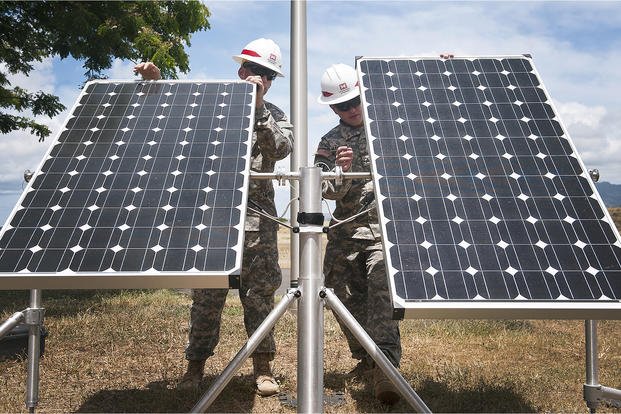In a crummy economy, it's important for recent veterans and other job seekers to look for signs of hope sprouting in the marketplace. One area that may offer reason for optimism is that of "green" careers.
Nationwide, more than three million jobs are associated with producing green goods and services (GGS) in 2010, representing about 2.4% of total employment, according to the U.S. Bureau of Labor Statistics (BLS). Among private-sector industries, manufacturing had the most GGS jobs, with almost 462,000.
The BLS defines green goods and services jobs as jobs in businesses that produce goods or provide services that benefit the environment or conserve natural resources; and jobs in which duties involve making a business' production processes more environmentally friendly.
California had the most GGS jobs (338,400) among all states, and Vermont had the highest proportion (4.4%), the BLS reported.
Given the growing focus on climate change and energy independence, the number of GGS jobs is likely to rise across industry and employment sectors in coming years. However, before you rush out to reprint your resume on 100% recycled paper (which, yes, is recommended), remember that green careers, like all others, are best achieved through research, analysis and careful planning.
Cultivating Career Opportunities
An important step toward getting a job in the green economy is to go green yourself. Employers will want to know whether you walk the walk or just talk the talk.
- Get Educated: If you're not familiar with industry buzzwords like "ecosystem," "sustainability" and "carbon footprint," spend time reviewing green industry literature, including a glossary of terms.
- Make Small Changes: Whether it's recycling all those empty soup cans, using a bicycle instead of a car, turning lights off more often or devoting an hour every Saturday to cleaning up your local park, living a greener lifestyle translates into experience in environmental stewardship.
- Volunteer: Donate your time and services to a local conservation agency, organic farm or other green entity, especially if you can find one in your prospective career field.
- Network: Explore the Green Jobs & Career Network on LinkedIn, the Green Jobs and Green Economy pages on Twitter and the numerous other blogs and industry association websites.
- Green Your Resume and Cover Letter: Don't stop with recycled paper: Be sure to customize each document for every green career you apply for. Pay particular attention to how prospective employers describe their green initiatives and mission, and be sure to use the same keywords in your resume and cover letter. Don't leave out the details of the integration you have already used in green military initiatives.
After establishing your own green credentials, it's time to start researching opportunities in your desired field. The options likely will be varied: According to the BLS, about 75% of businesses were using one or more green practices or technologies as of August 2011.
A multitude of job boards and professional resources are focusing on career fields in the green economy, among them:
For those looking to learn more about green career opportunities, there are numerous online resources related to the burgeoning green economy, including:
- Green Industry Job Search Guide: a compendium of articles and resources for green job-seekers
- BLS Green Jobs: Bureau of Labor Statistics resources regarding green jobs, green goods and services, and the bureau's Green Jobs Initiative
Want to Know More About the Military?
Be sure to get the latest news about the U.S. military, as well as critical info about how to join and all the benefits of service. Subscribe to Military.com and receive customized updates delivered straight to your inbox.











